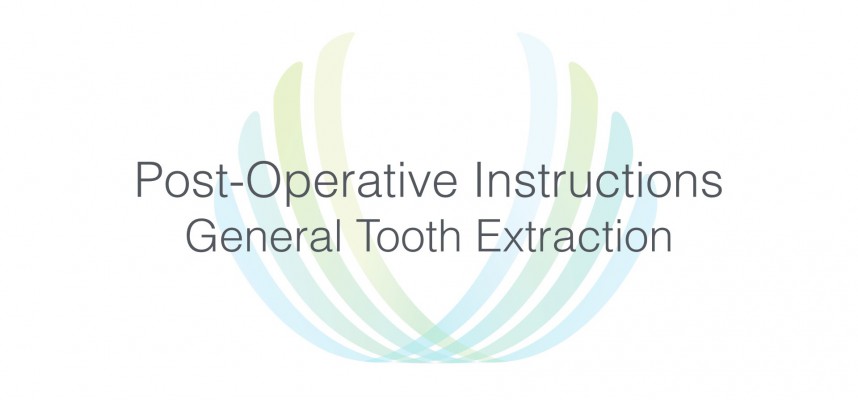After tooth extraction, it’s important for a blood clot to form to stop the bleeding and begin the healing process. That’s why we ask you to bite on a gauze pad for 30-45 minutes after the appointment. If the bleeding or oozing still persists, insert another gauze pad and bite firmly for another 30 minutes. You may have to do this several times.
After the blood clot forms, it is important not to disturb or dislodge the clot as it aids healing. Do not rinse vigorously, suck on straws, smoke, drink alcohol, or brush teeth next to the extraction site for 72 hours. These activities will dislodge or dissolve the clot and retard the healing process. Limit vigorous exercise for the next 24 hours as this will increase blood pressure and may cause more bleeding from the extraction site.
After the tooth is extracted you may feel some pain and experience some swelling. An ice pack or an unopened bag of frozen peas or corn applied to the area will keep swelling to a minimum. Take pain medications as prescribed. The swelling usually subsides after 48 hours.
You should begin taking pain medication prior to the local anesthetic wearing off. For moderate pain, ibuprofen (also known as Advil or Motrin) may be taken if you are not allergic or intolerant to non-steroidal anti-inflammatory drugs. Ibuprofen (Advil or Motrin) bought over the counter comes in 200 mg tablets: 3 tablets may be taken every six hours as needed for pain (no more than 3200 mg/24 hour period). If you are asthmatic, do not take ibuprofen unless you have tolerated it in the past. If your pain is not controlled by the ibuprofen alone, take your prescribed narcotic in addition. Ibuprofen and your prescribed narcotic can be taken together. For severe pain, the prescribed medication should be taken as directed (please note if this prescription has Tylenol [APAP] in it, do not take any other Tylenol/acetaminophen containing medications). Do not take any of the above medication if you are allergic or have been instructed by your doctor not to take it. This may include patients with liver or kidney disease.
If antibiotics are prescribed, continue to take them for the indicated length of time, even if signs and symptoms of infection are gone. Drink lots of fluid and eat nutritious soft food on the day of the extraction. You can eat normally as soon as you are comfortable.
It is important to resume your normal dental routine after 24 hours. This should include brushing and flossing your teeth at least once a day. This will speed healing and help keep your mouth fresh and clean.
After a few days you will feel fine and can resume your normal activities. If you have heavy bleeding, severe pain, continued swelling for two to three days, or a reaction to the medication, call the office immediately.
